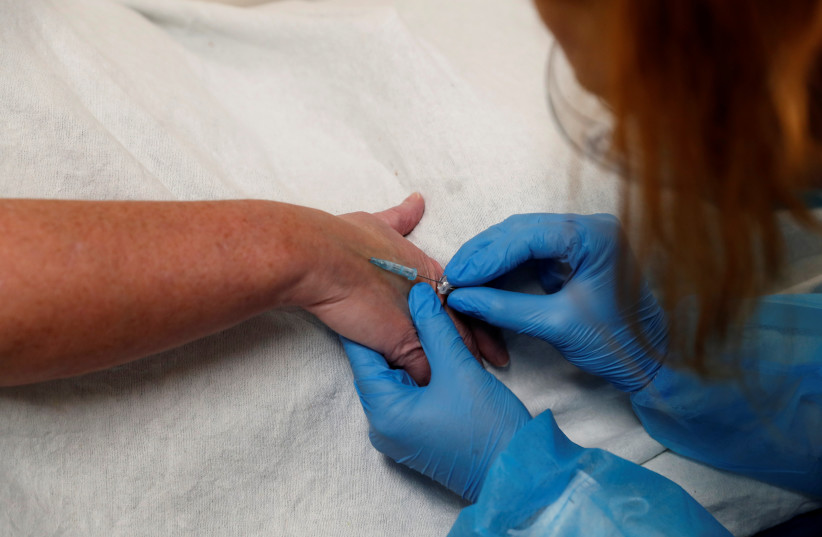Half of the coronavirus patients who were offered the antibody cocktail Regeneron to prevent their health from deteriorating have so far refused the drugs, Health Ministry data have shown.
The majority of those who declined the treatment were unvaccinated. One healthcare provider reported nearly 80% of such patients refusing the treatment.
As of Wednesday, 209 patients had received the drug, and 209 had declined to accept it.
Regeneron has been administered to Israeli patients infected with the virus who are considered at high risk of developing severe symptoms since September 23.
These patients include those who suffer from obesity, heart and lung diseases or have not been vaccinated.

The cocktail, a combination of different antibodies, was authorized in November for emergency use by the US Food and Drug Administration.
According to Regeneron’s data, if administered in the early stage of infection, the treatment reduces hospitalization and death in high-risk individuals by 70%.
The medicine is given to patients who are treated at home under the supervision of their healthcare providers.
While the Health Ministry and the two largest healthcare providers, Clalit Health Services and Maccabi Healthcare Services, do not record the vaccination status of patients who accept or refuse the drug, data from Meuhedet Health Maintenance Organization show the tendency to refuse treatment was especially prevalent among unvaccinated individuals.
As of Monday, Meuhedet had administered the drug to 20 patients, eight of whom were vaccinated and 12 unvaccinated, while 32 individuals refused.
According to Meuhedet’s records, 53% of the inoculated patients who were offered the treatment accepted, while among the unvaccinated, only 21% did.
Currently, the majority of the 475 serious patients in Israel and almost all of the 58 on ECMO machines are unvaccinated.
